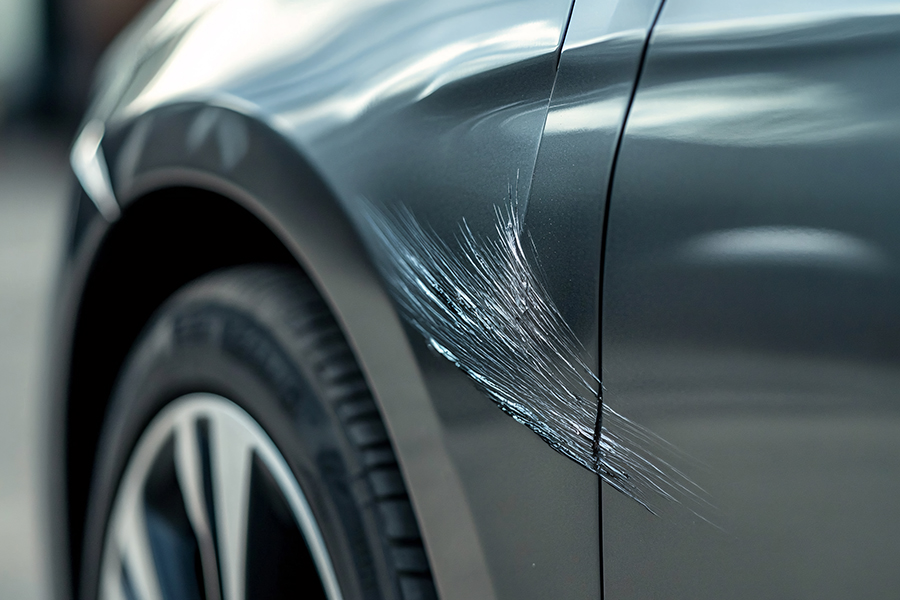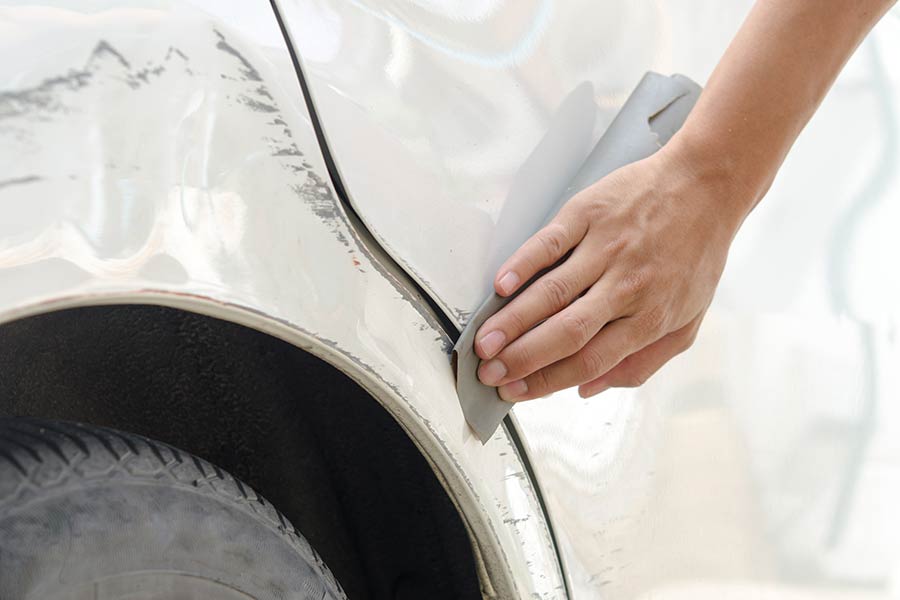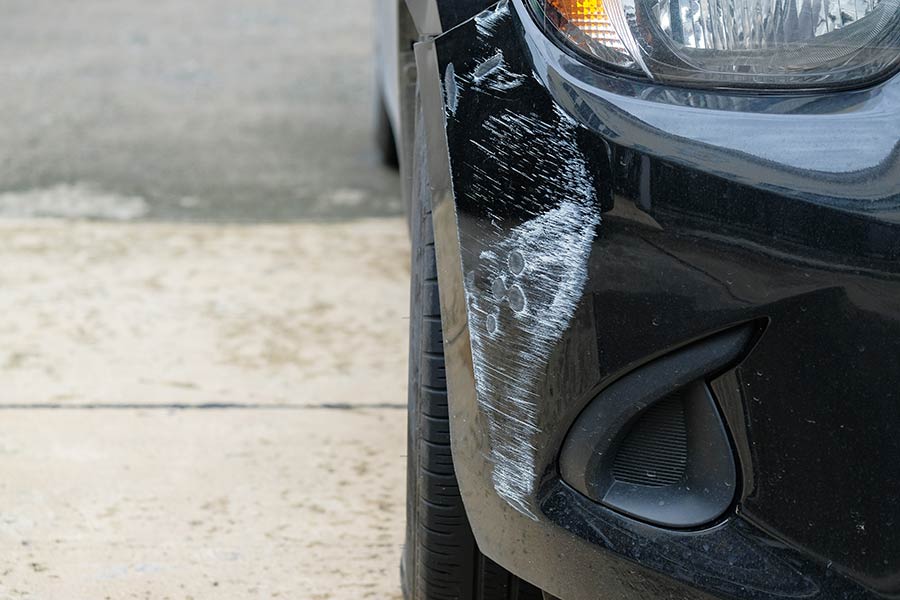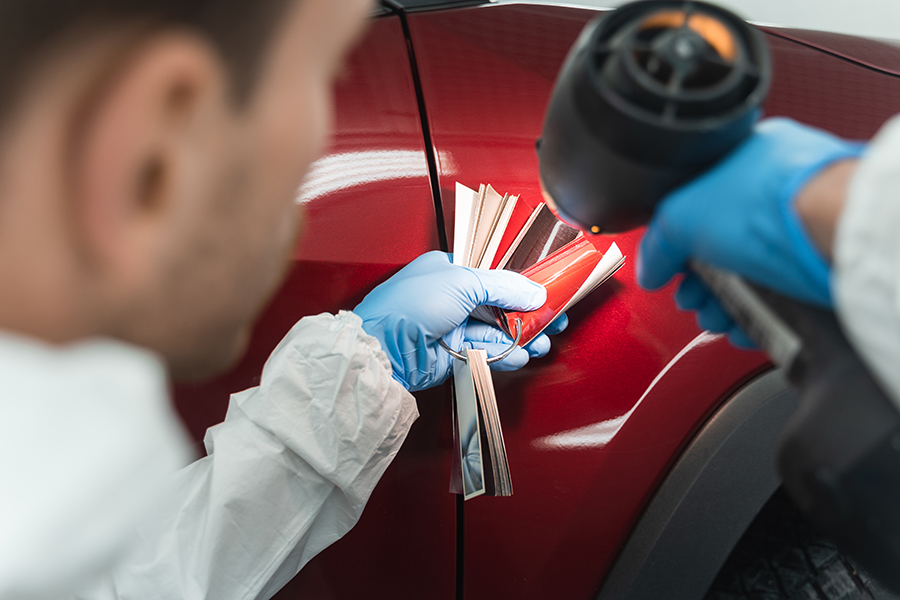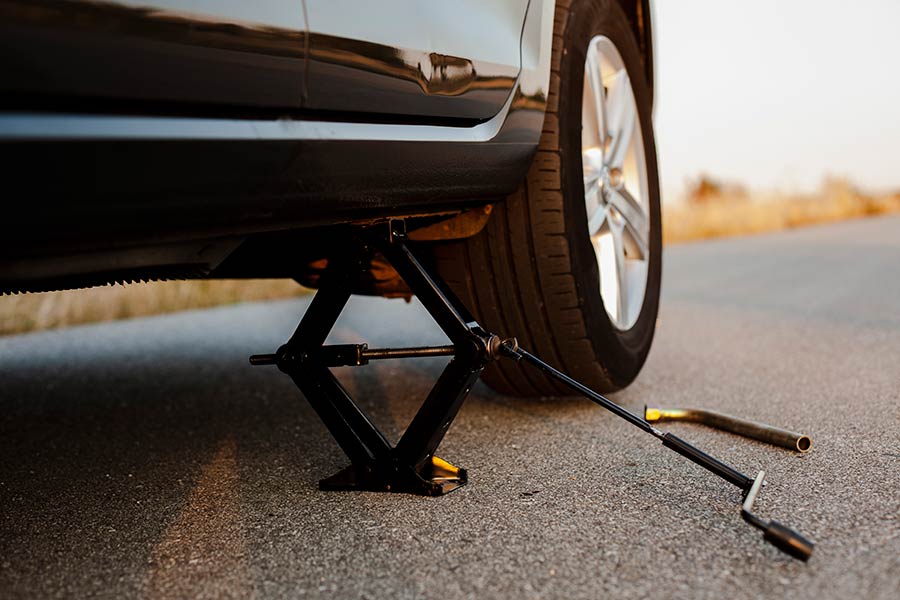Did you know that the average car gets scratched at least twice during its lifetime?
That dreaded moment when you spot a scratch on your car can ruin your day. Whether it happened in a parking lot, from a stray shopping cart, or through an unfortunate brush with a fence, car scratches are both unsightly and potentially damaging to your vehicle’s value.
Looking for scratch car repair near me? You’re not alone. Every day, thousands of car owners search for quick, reliable solutions to fix their car’s appearance. The good news? Professional repair services can often fix these scratches in just a few hours.
From minor clear coat scratches to deep paint damage, different types of scratches need different repair approaches. We’ll show you how to find the right repair service, understand costs, and get your car looking pristine again. Let’s start!
Types of Car Scratches
Understanding car scratches is crucial before searching for “scratch car repair near me.” Let me walk you through the three main types of scratches your car might face.
Surface Level Clear Coat Scratches
These are the most common scratches we see in cars. They affect only the transparent protective layer on top of your paint. I can tell you a simple way to check: run your fingernail over the scratch. If it doesn’t catch, you’re dealing with a clear coat scratch. These scratches look like fine lines or swirls under direct light and often come from everyday activities like car washing or minor contact with bushes.
Paint Layer Damage
When scratches go deeper and reach the color layer, we’re talking about paint layer damage. These scratches catch your fingernail when you run it across the surface. The most telling sign? You’ll see a distinct color difference in the scratch, but no white or gray primer showing through.
Here’s a quick comparison of scratch characteristics:
| Scratch Type | Fingernail Test | Appearance | Repair Difficulty |
|---|---|---|---|
| Clear Coat | Doesn’t catch | Light swirls | Easy |
| Paint Layer | Slightly catches | Color difference | Moderate |
| Primer | Deeply catches | White/gray visible | Difficult |
Deep Primer Scratches
These are the most serious scratches I deal with. They cut through all layers down to the primer or metal. You’ll spot them easily - they show up as white or gray lines against your car’s paint. What makes these scratches particularly concerning? They leave your car’s metal exposed to elements, making quick repair essential.
Key ways I check scratch depth: * Spray water on the scratch - if it disappears when wet but returns when dry, it’s likely just in the clear coat * Look at the scratch under bright light - deeper scratches cast shadows * Check the color inside the scratch - white or gray means you’re seeing primer
When dealing with primer scratches, I always recommend immediate professional attention. These aren’t the kind of repairs you want to postpone, especially if you’re planning to maintain your car’s value.
Professional Repair Services
When I talk to car owners about professional scratch repair, I always start by explaining their options. Today’s car repair services have evolved to fit busy schedules and varying needs.
Mobile Repair Units
I’ve seen a significant shift toward mobile repair services. These skilled technicians bring their fully-equipped units right to your doorstep. Here’s what makes mobile units special:
- Professional-grade tools and paint matching technology
- On-site repairs at your home or office
- Environmental-friendly repair methods
- No need to arrange alternative transportation
Body Shop Services
Traditional body shops remain the go-to choice for extensive damage. As a professional, I recommend body shops when:
| Service Need | Why Choose Body Shop |
|---|---|
| Deep Scratches | Advanced repair equipment |
| Multiple Panels | Paint booth facilities |
| Insurance Claims | Direct billing options |
| Complex Repairs | Certified technicians |
Same-Day Repair Options
I’m particularly excited about same-day services revolutionizing scratch car repair near me. Mobile units typically complete minor repairs within hours, while body shops might need several days.
The game-changer is SMART (Small to Medium Area Repair Technology). This approach focuses on the damaged area without affecting surrounding parts. When I work with customers, I explain how this method:
- Reduces repair time significantly
- Keeps costs lower than traditional methods
- Maintains factory-quality results
- Provides excellent color matching
What makes modern repair services stand out is their ability to blend convenience with quality. Mobile technicians use cutting-edge color-matching technology and professional-grade materials. They follow a systematic process: cleaning, sanding, filling, painting, and applying protective clear coat - all at your location.
For body shops, the process involves more detailed work. They’ll clean the area, remove damaged paint, apply body filler if needed, sand the surface, match paint colors using your car’s VIN, and finish with multiple protective layers.
Finding the Right Service
Looking for quality car scratch repair takes more than just a quick internet search. I’m going to show you how to make the best choice for your vehicle’s needs.
Reading Reviews and Ratings
When I help car owners find reliable repair services, I always start with reviews. Did you know that 85% of consumers trust online reviews as much as personal recommendations? I recommend checking:
- Google and Yelp ratings from verified customers
- Photos of before/after repair work
- Response time and communication mentioned in reviews
- Recent reviews within the last 3-6 months
Comparing Cost Estimates
I’ve learned that transparent pricing is a sign of trustworthy service. Here’s what I look for in estimates:
| What to Check | Why It Matters |
|---|---|
| Itemized costs | Shows honest pricing |
| Labor charges | Indicates repair time |
| Material fees | Quality of products used |
| Additional services | No hidden charges |
Checking Service Guarantees
Let me share something important about warranties - they’re not all created equal. The best repair services offer clear protection for their work. I always check these warranty details:
-
Duration of coverage * Panel repairs (typically 1 year against shrinking/cracking) * Paint work (lifetime warranty for gloss) * Rust protection (90-day minimum)
-
Warranty conditions * Transfer rules if you sell your car * Geographic limitations * Maintenance requirements
I’ve found that mobile repair units often provide warranties comparable to body shops, though coverage terms might differ. When comparing guarantees, I make sure to get everything in writing and understand exactly what’s covered.
Remember, the cheapest option isn’t always the best value. I’ve seen many cases where paying a bit more for a service with solid guarantees saved money in the long run.
Cost Factors
Let me break down the costs you’ll face when fixing your car’s scratches. As someone who’s helped countless car owners through this process, I know pricing can seem complex at first.
Scratch Depth and Size
The deeper the scratch, the more you’ll pay - it’s that simple. Here’s what I tell my clients about scratch repair costs:
- Surface scratches: $50-$150 for professional buffing
- Paint layer damage: $400-$1,000 for proper repair
- Deep primer scratches: $800-$1,500 for complete restoration
Size matters too. A tiny deep scratch might cost less than a long surface scratch that spans multiple panels.
Paint Type and Color
Paint choices make a big difference in your final bill. Let me show you why:
| Paint Type | Cost Impact | Why It Matters |
|---|---|---|
| Standard | Lower | Readily available |
| Metallic | Medium | Special matching needed |
| Custom/Luxury | Highest | Unique formulation |
I’ve seen luxury car owners pay up to $5,000 for perfect color matching. Your car’s specific paint type might need special handling - some paints contain metallic flakes or unique finishes that take extra time to match correctly.
Labor and Materials
The work itself brings several costs together. When I look at repair estimates, I check these main components:
-
Base materials * Primers and paint * Clear coat protection * Sanding materials * Polishing compounds
-
Labor time * Surface preparation * Paint application * Finishing and buffing
Small touch-ups might take an hour, while deep scratches could need several days of work. I always remind my clients that quality materials make up about 40% of the total cost - and they’re worth every penny for a lasting repair.
Insurance and Coverage
I want to talk about something that often gets overlooked when dealing with car scratches - your insurance and payment choices. Making smart decisions here can save you hundreds of dollars.
Filing Claims for Scratch Repair
Your car insurance might pay for scratch repairs, but here’s what I’ve learned: it’s not always the best move. Let me show you when to file a claim:
| Damage Cost | Deductible | Should You File? |
|---|---|---|
| Under $500 | $500 | No - pay out of pocket |
| $1000+ | $500 | Yes - worth claiming |
| $3000+ | $1000 | Yes - significant savings |
I always tell my clients: if the repair costs less than your deductible, skip the claim. Why? Your insurance rates might go up after filing.
Warranty Protection
Paint warranties are your friend - I’ve seen them save car owners thousands. Most professional shops offer:
- Limited lifetime warranty on paint work
- 90-day minimum rust protection
- 1-year coverage against paint shrinking
- UV protection guarantees
But watch out - these warranties need proper maintenance. I make sure my clients know about washing and waxing requirements to keep their coverage valid.
Payment Options
Finding “scratch car repair near me” is one thing, but paying for it is another. I’m excited about the new payment choices available:
-
Traditional payment methods * Cash payments * Credit cards * Insurance coverage * Personal checks
-
Modern financing options * Monthly payment plans * Text-to-pay services * Digital wallets * Same-day financing
Many shops now work with financing companies to make repairs more affordable. I’ve seen monthly payments as low as $12 for protection plans that cover future scratches too.
Remember: your insurance company might pay the repair shop directly if you pick an approved facility. This makes the whole process smoother - you just handle the deductible.
Conclusion
Car scratches might seem like minor issues, but quick action prevents bigger problems down the road. My years working with car repairs have shown that professional attention makes a real difference in results and long-term protection.
Professional repair services offer solutions for every situation - from mobile units coming to your location to full-service body shops handling major damage. Smart choices about repair timing, service selection, and payment options will save you money while keeping your car looking great.
Right now is the perfect time to schedule repair for those scratches you’ve been meaning to fix. Many repair shops offer same-day service and flexible payment plans, making it easier than ever to restore your car’s appearance.
Remember, quality repairs protect both your car’s value and its appearance. Regular maintenance and prompt scratch repair will keep your vehicle looking showroom-fresh for years to come.
## FAQs
-
How much does it typically cost to repair a car scratch? The cost of repairing a car scratch varies depending on its depth and size. Surface scratches can cost between $50-$150 for professional buffing, paint layer damage may range from $400-$1,000, and deep primer scratches can cost $800-$1,500 for complete restoration. The price can also be affected by the type of paint and color of your car.
-
Can I repair car scratches myself? While minor surface scratches might be manageable with DIY methods, it’s generally recommended to seek professional help for most car scratches. Professional technicians have the proper tools, expertise, and paint-matching technology to ensure a high-quality repair that maintains your car’s value and appearance.
-
How long does it take to repair a car scratch? The time required for scratch repair depends on the severity of the damage. Minor scratches can often be fixed within a few hours, especially with mobile repair units or same-day services. More extensive damage might require several days at a body shop. Many repair services now offer SMART (Small to Medium Area Repair Technology) which can significantly reduce repair time.
-
Will my insurance cover scratch repair? Your car insurance might cover scratch repairs, but it’s not always beneficial to file a claim. If the repair cost is less than your deductible, it’s usually better to pay out of pocket. For more expensive repairs (typically over $1000), filing a claim could be worthwhile. Always consider the potential impact on your insurance rates before filing a claim.
-
What are the different types of car scratches? There are three main types of car scratches: surface level clear coat scratches (affecting only the transparent protective layer), paint layer damage (reaching the color layer), and deep primer scratches (cutting through to the primer or metal). The depth of the scratch determines the complexity and cost of the repair.
-
Are mobile repair services as good as traditional body shops? Mobile repair services have become increasingly sophisticated and can often provide quality comparable to traditional body shops, especially for minor to moderate damage. They offer convenience by coming to your location and can typically complete repairs more quickly. However, for extensive damage or repairs involving multiple panels, a traditional body shop might be more suitable.
-
How can I find a reliable car scratch repair service near me? To find a reliable repair service, start by reading online reviews and ratings from verified customers. Look for recent reviews, before and after photos, and comments about communication and service quality. Compare cost estimates from multiple providers, ensuring they offer itemized pricing. Also, check the warranty and guarantee options provided by different services.
-
What should I look for in a scratch repair warranty? A good scratch repair warranty should cover the duration of protection (typically 1 year for panel repairs, lifetime for paint gloss), rust protection (minimum 90 days), and UV protection. Make sure to understand the warranty conditions, including any maintenance requirements, geographic limitations, and transferability if you sell your car.
